30.9. —
21.12.2023Va-Bene Elikem Fiatsi, Vanessa Amoah Opoku, et al.
21.12.2023
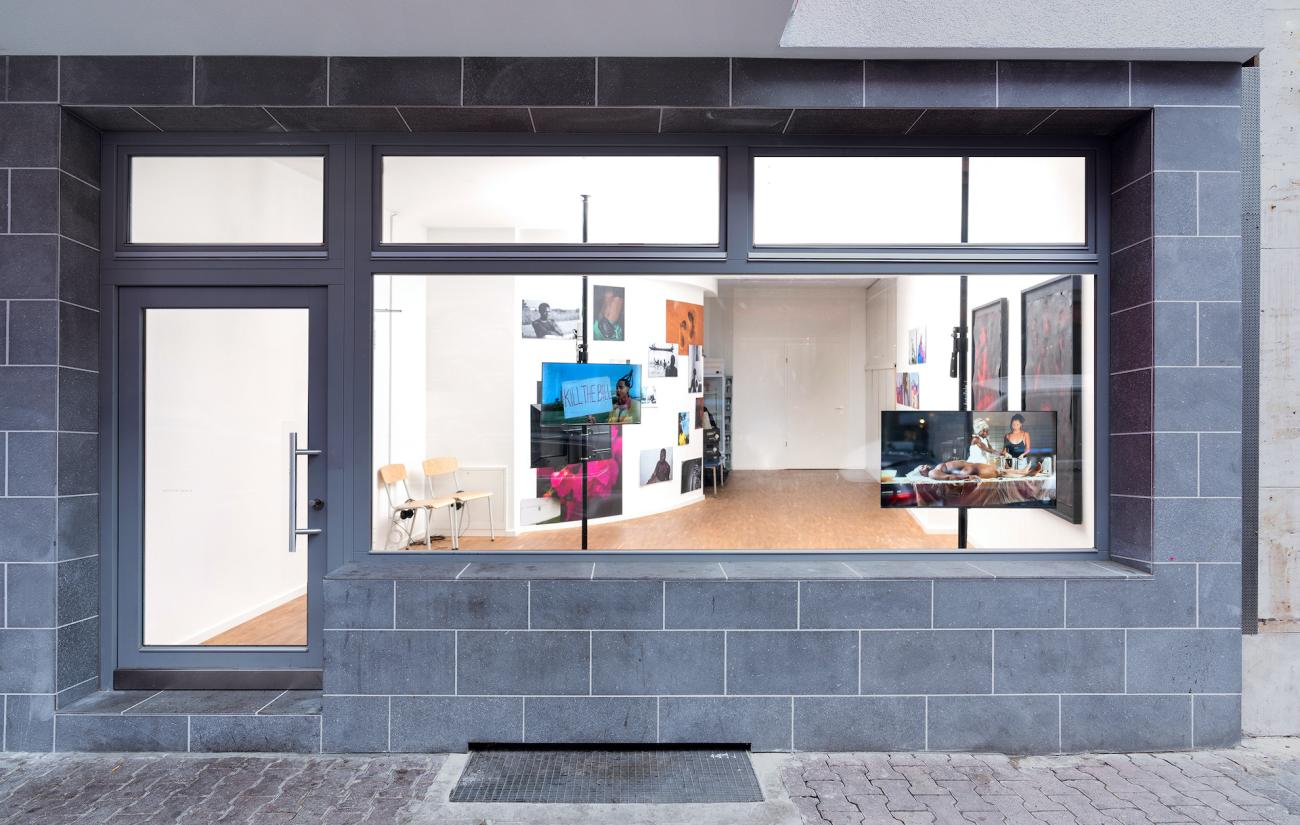
– deutsch siehe unten –
'ɔsa nti' Because of War – Healing and Resilience Back Home
Curated by Va-Bene Elikem Fiatsi & Vanessa Amoah Opoku with works by Adelaide Damoah, Kwasi Darko, Va-Bene Elikem Fiatsi, Enam Gbewonyo, Impact Queer Photography Workshop and Angel Maxine
30.9. – 21.12.2023
30.9., 6pm: Panel discussion (register via hello [at] synnika.space)
8pm: Official opening of the exhibition
On Saturday, September 30th, Synnika will open the group exhibition 'ɔsa nti' Because of War – Healing and Resilience Back Home curated by the artists Va-Bene Elikem Fiatsi and Vanessa Amoah Opoku. The show will start with a hybrid panel discussion between the artists, the curators and Sakhile Matlhare (Co-founder and art director at Sakhile&Me) at 6pm, followed by the official opening at 8pm.
The show brings together works and perspectives by queer artists and their allies living in Ghana and the diaspora confronting the reality of religious and political violence and discrimination against LGBTQIA+ persons in Ghana. With a focus on the subcultural scenes, especially in Accra and Kumasi, 'ɔsa nti' imparts visibility for queer spaces of resistance, created through media, art, fashion and music. The show curated by the duo in cooperation with Synnika is part of the annual program theme Beyond Barracks. Directed at questions of collective practices that create viable and social habitats, there is also a decidedly spatial component inherent to criminalizing sexual identities. By rigorously displacing the right of public expression to not even the private but no space at all, sexual orientations outside the heteronormative sphere are strategically erased from cityscapes.
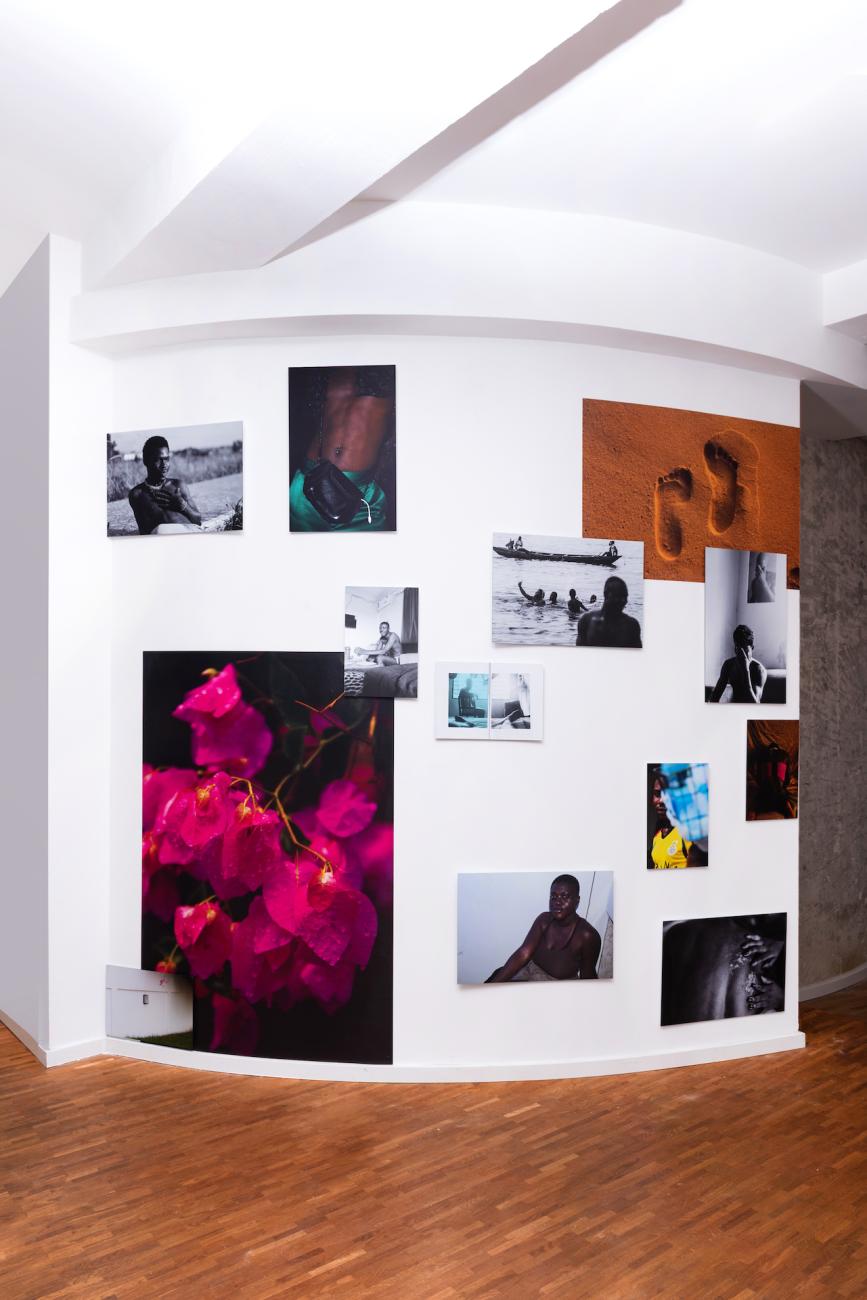
The exhibition reveals how surviving activists, artists and allies use their practice to stand up against politics and propaganda seeking to criminalize them – may it be through social media platforms for tireless activism and advocating for queer inclusivity, rights, justice and freedom, or through visual representations of expressing queerness in art. 'ɔsa nti' thus functions as a space for community aiming for an exchange of thoughts concerning the relationship between diaspora and local artists, and exploring the notions of solidarity, challenge and mutual healing. The group exhibition features works of various formats, such as photography, film, installation, music, performances as well as listening sessions. By addressing the impact of international solidarity the show also forges links to the local diaspora in Frankfurt/Main’s Central station district.
The 'ɔsa nti'-project arose against the background of homophobic and transphobic acts spreading throughout African countries that are being enforced by judicial processes, such as the draft for an anti-LGBTQIA+ law in Ghana dubbed the "Human Sexual Rights and Family Values Bill" presented in 2021. Given the current political situation, the draft already leads to rigorous criminalization of the queer community and its safe spaces while it prosecutes those identifying as an LGBTQIA+ person, allies and anyone empathizing with queer resistance. It is our hope to build an international allyship through global solidarity and radical forces that opposes the horrors of such inhuman acts established with the help of some conservative groups in Europe and the US.
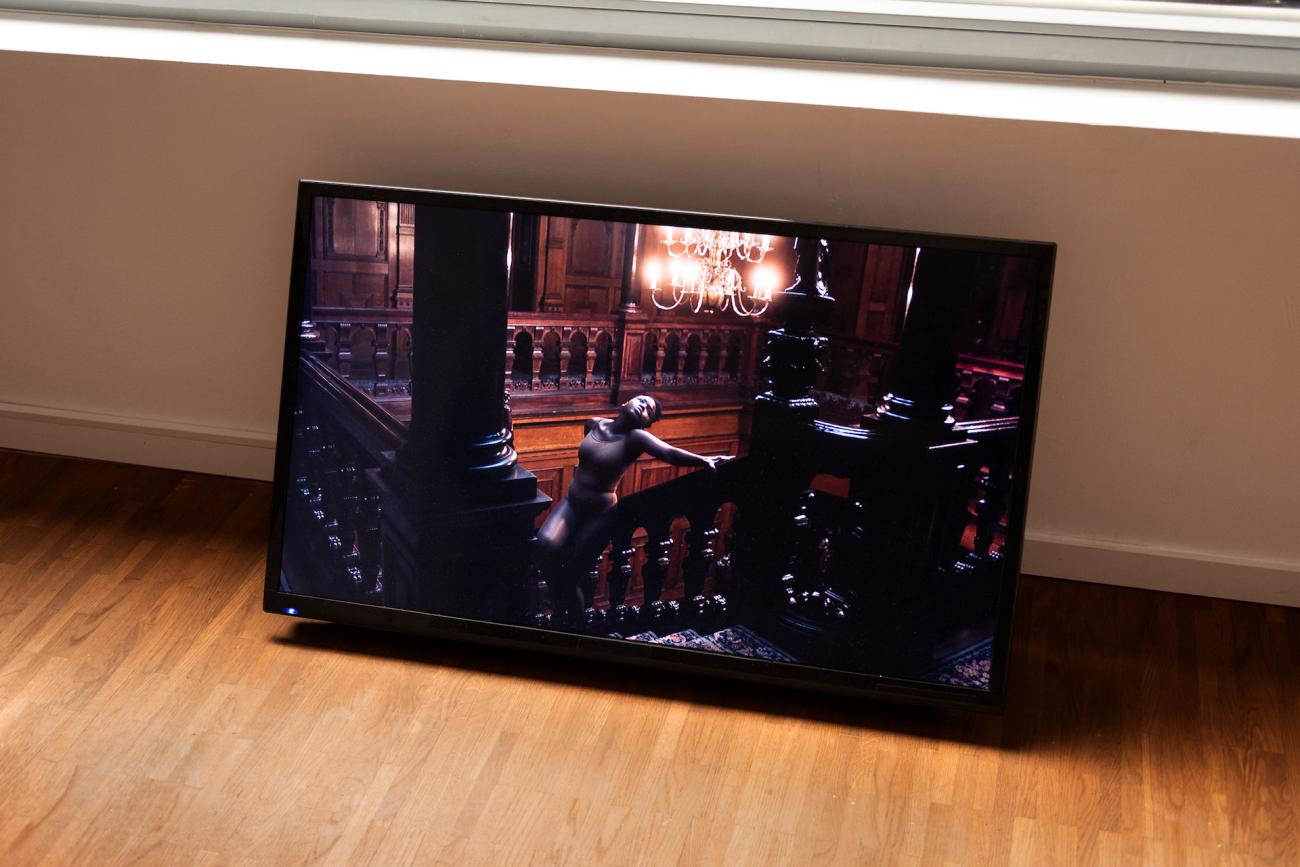
If the law passes, in addition to being punished with up to 5 years of imprisonment solely for their sexual identity, freedom of speech and expression would be severely restricted. Almost everyday there is an alleged gay, lesbian or trans person attacked either by mobs on the street, by blackmailing or catfishing. Perpetrators who pose as LGBTQIA+ fellows lure young queers into isolated areas, abuse, rape and beat them up. Still, most of the queer activists never gave up on their fight and protest for freedom, love, justice and inclusion. It has become more urgent than ever for visual artists, performers, musicians, and interdisciplinary practitioners to confront the hate, propaganda and discrimination in their own ways as possible.
The exhibition project is funded by NEUSTART Kultur, Stiftung Kunstfonds, supported by BKM Kultur und Medien, Institut für Auslandsbeziehungen, Kulturamt Stadt Frankfurt am Main and Antidiskriminierungsstelle Hessen. We also want to thank the artist Adelaide Damoah, and her representing gallery, Sakhile&Me, for supporting the show with advice and by lending us Damoah’s artworks.
'ɔsa nti' Because of War – Healing and Resilience Back Home
Kuratiert von Va-Bene Elikem Fiatsi & Vanessa Amoah Opoku mit Arbeiten von Adelaide Damoah, Kwasi Darko, Va-Bene Elikem Fiatsi, Enam Gbewonyo, Impact Queer Photography Workshop and Angel Maxine
30.9. – 21.12.2023
30.9., 6pm: Panelgespräch (Anmeldung via hello [at] synnika.space)
8pm: Offizielle Eröffnung der Ausstellung
Ab dem 30. September 2023 zeigt Synnika Gruppenausstellung 'ɔsa nti' Because of War – Healing and Resilience Back Home, kuratiert von den Künstlerinnen Va-Bene Elikem Fiatsi und Vanessa Amoah Opoku. Die Ausstellung wird am Samstag, den 30. September um 18 Uhr mit einem Panelgespräch eröffnen, an dem die Künstler:innen, Kuratorinnen Va-Bene Elikem Fiatsi und Vanessa Amoah Opoku sowie Sakhile Matlhare (Co-Gründerin und künstlerische Leiterin von Sakhile&Me) teilnehmen. Die offizielle Eröffnung beginnt um 20 Uhr, direkt im Anschluss an das Gespräch.

Die Ausstellung bringt die Positionen und Perspektiven queerer Künstler:innen und ihrer Verbündeten zusammen, die in Ghana und der Diaspora leben und sich mit der Realität religiös und politisch motivierter Gewalt und Diskriminierung von LGBTQIA+ Personen in Ghana auseinandersetzen. Mit Fokus auf die subkulturelle Szene, im Besonderen in Accra und Kumasi, vermittelt 'ɔsa nti' eine Sichtbarkeit für queere Räume des Widerstands, die durch Medien, Kunst, Mode und Musik geschaffen werden. Die Ausstellung, die das Duo gemeinsam mit dem Synnika-Kollektiv organisiert, ist Teil des Jahresprogramm für 2023, Beyond Barracks. An Fragen der kollektiven Praxis ausgerichtet, durch die lebenswerte und soziale Räume entstehen, ist der Kriminalisierung sexueller Identität eine dezidiert räumliche Komponente inhärent. Durch das rigorose Verlagern des Rechts auf öffentliche Äußerung nicht in den Bereich des Privaten, sondern in gar keinen Raum, werden sexuelle Orientierungen, die außerhalb von Heteronormativität liegen, strategisch aus dem Stadtbild verdrängt.
Die Ausstellung zeigt, wie überlebende Aktivist:innen, Künstler:innen und Verbündete ihre Praxis nutzen, um sich gegen die Politik und Propaganda zu wehren, die versuchen, sie zu kriminalisieren – sei es durch unermüdlichen Aktivismus und den Einsatz für queere Inklusion, Rechte, Gerechtigkeit und Freiheit auf Social Media oder durch visuelle Repräsentationen, die Queerness in künstlerischen Formaten Ausdruck verleihen. 'ɔsa nti' fungiert somit auch als ein Ort für Gemeinschaft. Die Ausstellung zielt auf den Austausch über die Beziehung von Künstler:innen aus Ghana und der Diaspora ab und erforscht thematische Zusammenhänge von Solidarität, Widerstand und gemeinsamer Heilung. Die Ausstellung umfasst Werke verschiedener Medien, wie Fotografie, Film, Installationen, Musik, Performances, Listening Sessions. Im Kontext der Auswirkungen internationaler Solidarität schlägt 'ɔsa nti' auch eine Brücke zur lokalen Diaspora im Frankfurter Bahnhofsviertel.
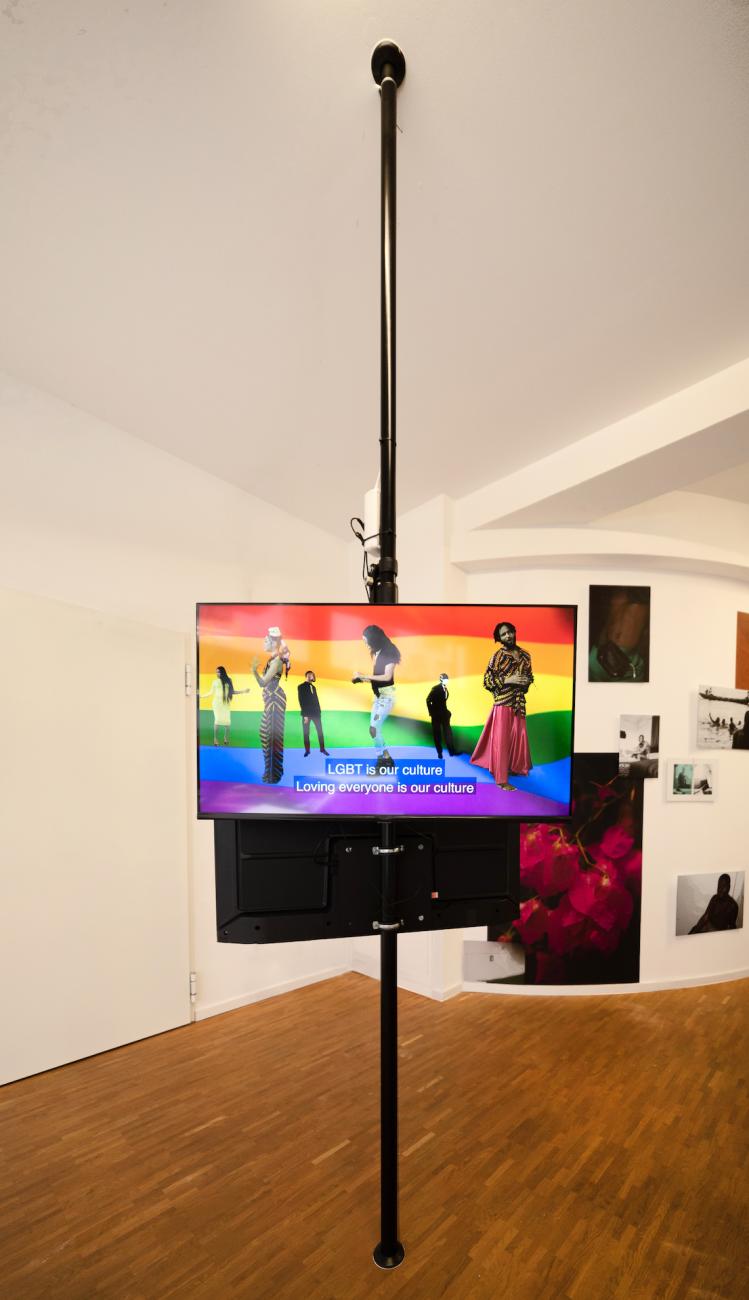
Das 'ɔsa nti'-Projekt entstand vor dem Hintergrund homo- und transphober Gewalt, die sich gegenwärtig in einer Vielzahl afrikanischer Länder ausbreitet und durch gerichtliche Beschlüsse bekräftigt und durchgesetzt wird. Darunter fällt ebenfalls der Entwurf eines Anti-LGBTQIA+-Gesetzes in Ghana, betitelt als "Human Sexual Rights and Family Values Bill", das im Jahr 2021 vorgelegt wurde. Angesichts der aktuellen politischen Lage führt der Entwurf bereits jetzt zur rigorosen Kriminalisierung queerer Communities und ihrer Schutzräume, während diejenigen, die sich als LGBTQIA+ Person identifizieren oder als Verbündete mit queerem Widerstand sympathisieren, strafrechtlich verfolgt werden. Wir hoffen, durch globale Solidarität und radikale Kräfte internationale Bündnisse aufzubauen, die sich der Willkür solcher menschen- feindlichen Politik – an der auch konservative Gruppen Europas und USA beteiligt sind – entgegenstellen.
Wenn das Gesetz in Kraft tritt, würden nicht nur Menschen wegen ihrer sexuellen Identität mit bis zu 5 Jahren Gefängnis bestraft, auch Rede- und Meinungsfreiheit würden enorme Einschränkungen erfahren. Fast jeden Tag wird eine mutmaßlich als schwul, lesbisch oder transsexuell erkannte Person entweder durch Straßenmobs, Blackmailing oder Catfishing angegriffen. Täter, die sich als LGBTQIA+ ausgeben, locken junge Queers an abgelegene Orte, missbrauchen, vergewaltigen und ver- prügeln sie. Doch die meisten Queer-Aktivisten geben den Kampf und Protest für Freiheit, Liebe, Gerechtigkeit und Inklusion nicht auf. Für bildende Künstler:innen, Performer:innen, Musiker:innen und interdisziplinäre Kreative ist es dringender denn je, dem Hass, der Propaganda und der Diskriminierung auf ihre eigene Weise etwas entgegenzustellen.
Das Ausstellungsprojekt wird gefördert von NEUSTART Kultur der Stiftung Kunstfonds, unterstützt von der Beauftragten der Bundesregierung für Kultur und Medien, Institut für Auslandsbeziehungen, Kulturamt Stadt Frankfurt am Main und der Antidiskriminierungsstelle Hessen. Auch danken wir der Künstlerin Adelaide Damoah und ihrer vertretenden Galerie, Sakhile&Me, die diese Ausstellung mit Rat unterstützt und Damoahs Werke zur Verfügung gestellt haben.
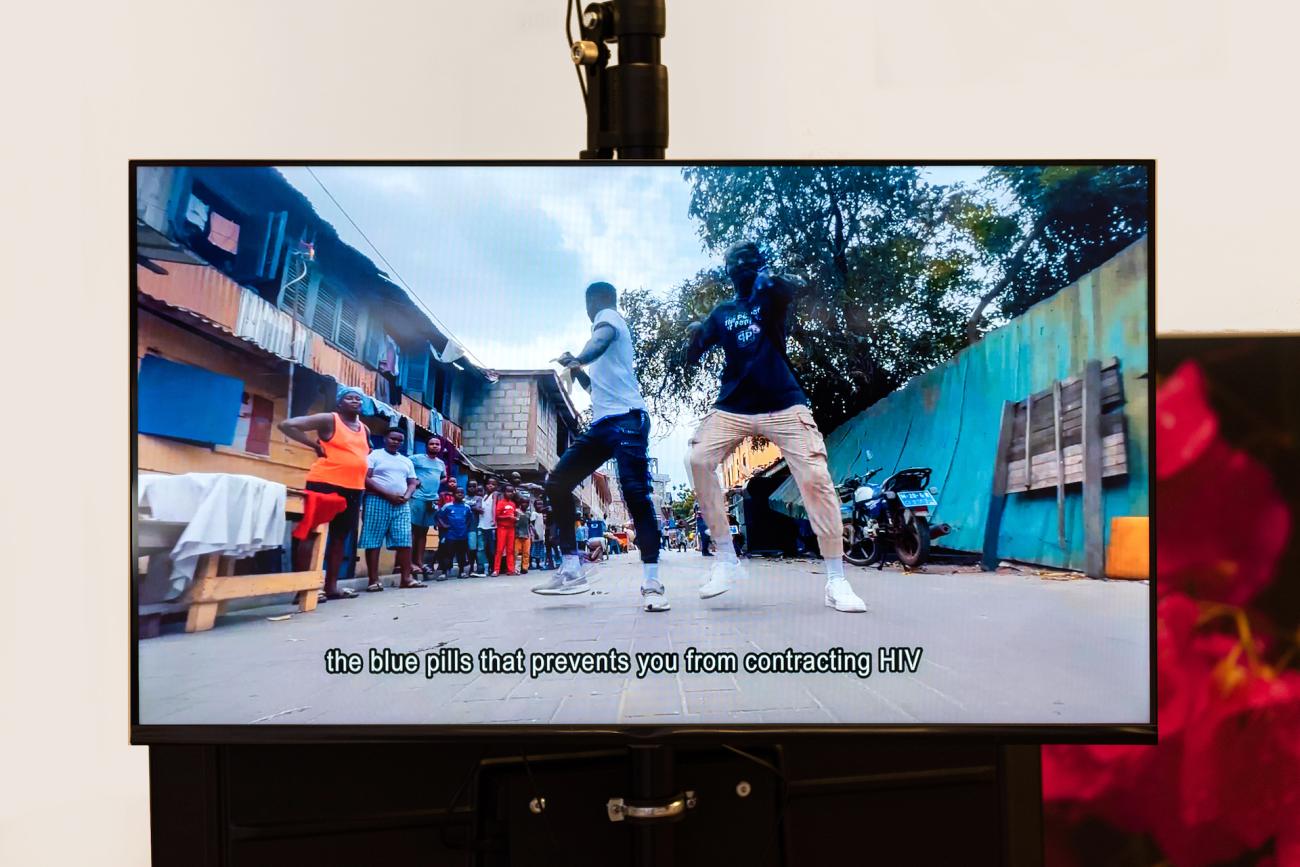
Va-Bene Elikem Fiatsi, popularly known as crazinsT artisT, is a Ghanaian trans woman, working as a multidisciplinary “artivist”, curator, philanthropist and a mentor across several countries. She is the founder and artistic director of crazinisT artisT studiO (TTO), Our Railway Cinema Gallery (ORCG) and perfocraZe International Artists Residency (pIAR) which aimed at radicalizing the arts and promoting exchange between international and local artists, activists, researchers, curators, and critical thinkers. / Va-Bene Elikem Fiatsi, auch bekannt als crazinsT artisT, ist eine ghanaische Transfrau, die als multidisziplinäre "Artivistin", Kuratorin, Philanthropin und Mentorin international tätig ist. Als Gründerin und Leiterin von crazinisT artisT studiO (TTO), Our Railway Cinema Gallery (ORCG) und perfocraZe International Artists Residency (pIAR), ist es ihr Anliegen, Kunst zu radikalisieren und den Austausch von internationalen und lokalen Künstlern, Aktivisten, Forschern, Kuratoren und kritischen Denkern zu fördern.
Vanessa Amoah Opoku is an German-Ghanaian interdisciplinary artist, based in Berlin, focussing on history, technology and marginalized narratives within mixed realities. In her artistic practice, she reflects on how alliances between art, science, and technology can change perceptions of our world, reality, and all living things. She is also a member of the artist collective PARA, working in the field of interdisciplinary and site-specific installations and performing arts. / Vanessa Amoah Opoku ist eine deutsch-ghanaische, in Berlin lebende interdisziplinäre Künstlerin, die sich mit Geschichte, Technologie und marginalisierten Narrativen innerhalb gemischter Realitäten beschäftigt. Ihre künstlerische Praxis reflektiert darüber, wie Allianzen zwischen Kunst, Wissenschaft und Technologie die Wahrnehmung unserer Realität und aller Lebewesen verändern können. Sie ist außerdem Mitglied des Künstler:innenkollektivs PARA, das im Bereich der interdisziplinären, ortsspezifischen Installation und Darstellenden Kunst zu verorten ist.
Adelaide Damoah is a British-Ghanaian artist working at the intersection of painting and performance within the context of colonialism, identity, sexuality and spirituality. Damoah’s current practice involves using her body as a “living paintbrush” to paint or print onto various surfaces. She is a founding member of the Black British Female Artists (BBFA) Collective and co-founder of the Intersectional Feminist Art (InFems) Collective. / Adelaide Damoah ist eine britisch-ghanaische Künstlerin, die an der Schnittstelle von Malerei und Performance im Kontext von Kolonialismus, Identität, Sexualität und Spiritualität arbeitet. Damoahs derzeitige Praxis besteht darin, ihren Körper als "lebenden Pinsel" zu benutzen, um auf verschiedenen Oberflächen zu malen oder zu drucken. Sie ist Gründungsmitglied des Black British Female Artists (BBFA)-Kollektivs und Mitbegründerin des Intersectional Feminist Art (InFems) Kollektivs.
Kwasi Darko is a Ghanaian photographer and multidisciplinary artist, living and working in Accra. His practice revolves around communities and local stories using various mediums including image making, site installations and spatial design to interpret what he sees and learns. "Here & Now" is a work of affirmation and visibility for people disregarded because of the hue of their skin and for who they love. / Kwasi Darko ist ein ghanaischer Fotograf und multidisziplinärer Künstler, der in Accra lebt und arbeitet. Seine Praxis befasst sich mit Gemeinschaften und lokalen Geschichten, wobei er diverse Medien einsetzt, darunter Bild- und Fotogestaltung, ortsspezifische Installationen und Raumgestaltung, um zu interpretieren, was er wahrnimmt und lernt. "Here & Now" ist ein Werk der Affirmation und Sichtbarkeit für Menschen, die aufgrund ihrer Hautfarbe und Sexualität Diskriminierung erfahren.
Enam Gbewonyo is a British-Ghanaian artist and curator who lives and works in London. She is also the founder of the Black British Female Artist (BBFA) Collective. Her practice investigates identity, womanhood, and humanity through the mediums of textiles and performance. Gbewonyo’s work also advocates the healing benefits of craft. Gbewonyo’s curatorial work is dedicated to highlighting artists from Africa and its diaspora. / Enam Gbewonyo ist eine britisch-ghanaische Künstlerin und Kuratorin, die in London lebt und arbeitet. Sie ist die Gründerin des Black British Female Artist (BBFA) Collective. In ihrer Arbeit untersucht sie Identität, Weiblichkeit und Menschlichkeit mit Hilfe von Textilien und Performance. Gbewonyo setzt sich in ihrer Arbeit auch für die heilende Wirkung des Handwerks ein. Gbewonyos kuratorische Praxis widmet sich der Förderung und Sichtbarkeit von Künstler:innen des afrikanischen Kontinents und der Diaspora.
Impact Queer Photography Workshop shows a selection of photographs by the participants of the beginner masterclass titled "impact queer photography workshop", organized by LGBT+ Rights Ghana and facilitated by photographers Eric Gyamfi and Kwasi Darko. These photographs, made by both participants of the workshop and their facilitators speak to the various communities, lives and spaces that the photographers navigate on the daily. / Impact Queer Photography Workshop zeigt eine Auswahl an Fotografien von Teilnehmer:innen des Anfänger- Masterkurses mit dem Titel "impact queer photography workshop", der von LGBTQIA+ Ghana organisiert und von den Fotografen Eric Gyamfi und Kwasi Darko geleitet wurde. Diese Bilder, die sowohl von den Workshop-Teilnehmer:innen als auch von Gyamfi und Darko gemacht wurden, erzählen von verschiedenen Gemeinschaften, Leben und Räumen, in denen sich die Fotograf:innen täglich bewegen.
Angel Maxine is known as the first Ghanaian musician openly identifying as transgender. Angel Maxine uses music as a tool of activism advocating for LGBTQIA+ rights in Ghana. She has been vocal about her rejection of the proposed Ghanaian anti-LGBT bill on social media platforms as well as in several tracks referring to the discrimination of queers. / Angel Maxine ist als erste ghanaische Musikerin bekannt, die sich offen als Transgender identifiziert. Angel Maxine nutzt ihre Musik als Mittel des Aktivismus und setzt sich für die Rechte der LGBTQIA+ community in Ghana ein. Auf Social-Media-Plattformen und in mehreren Tracks, die sich der Diskriminierung von queeren Personen widmen, hat sie bereits ihre Ablehnung des ghanaischen Anti-LGBTQIA+ Gesetzesentwurfts geäußert.
Photo credits all pictures: Robert Schittko, courtesy of the artists.
